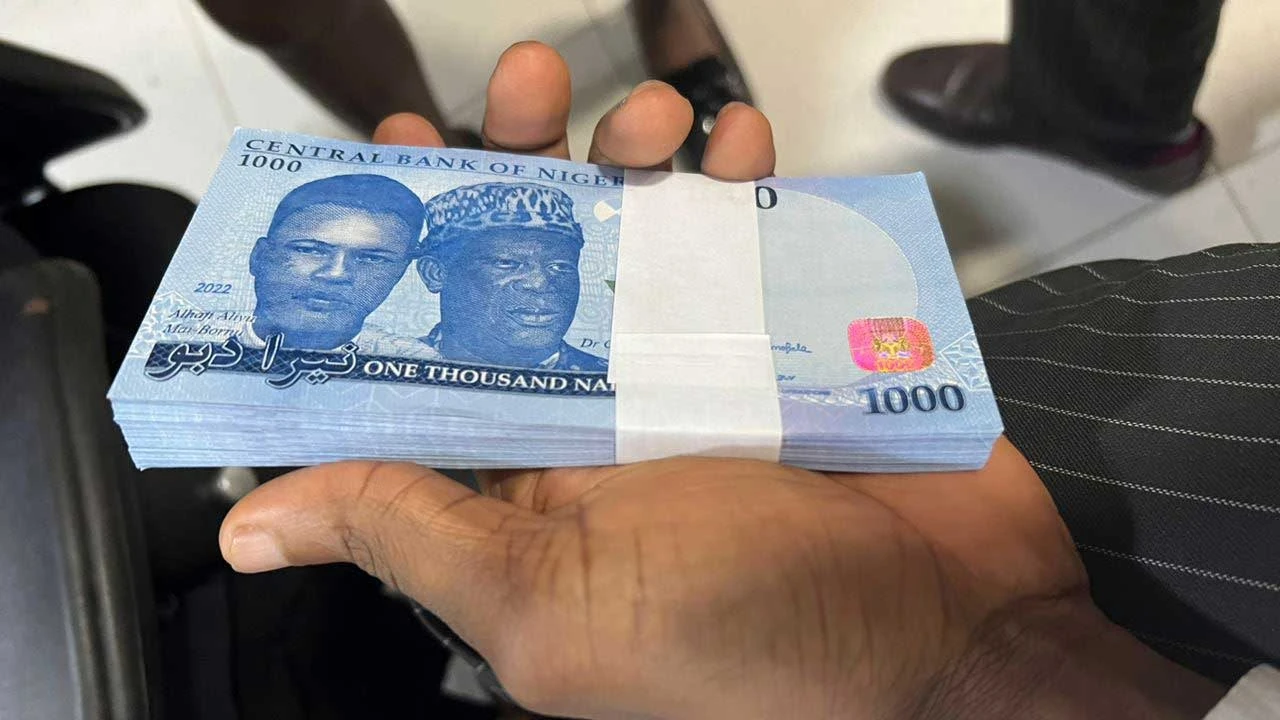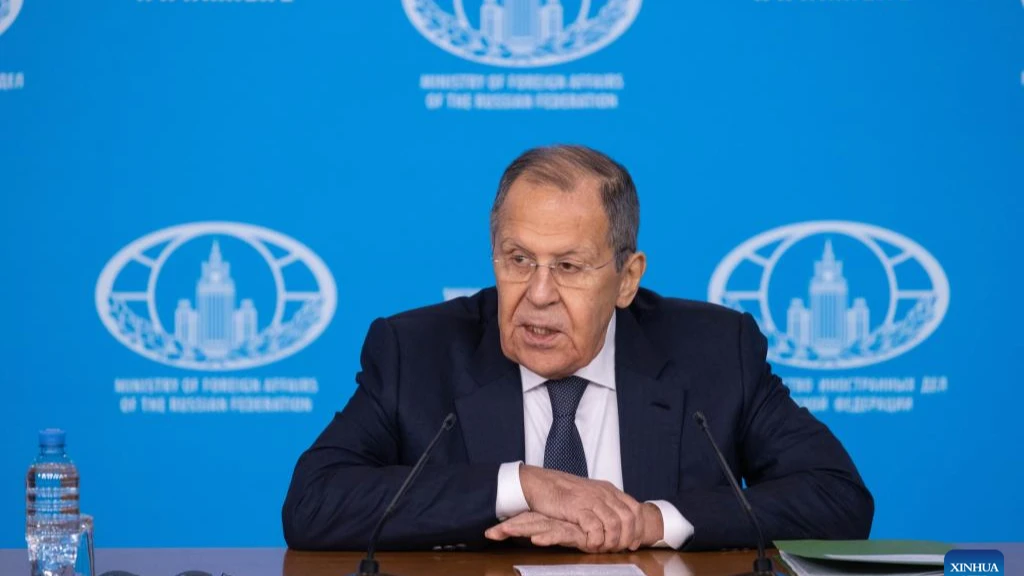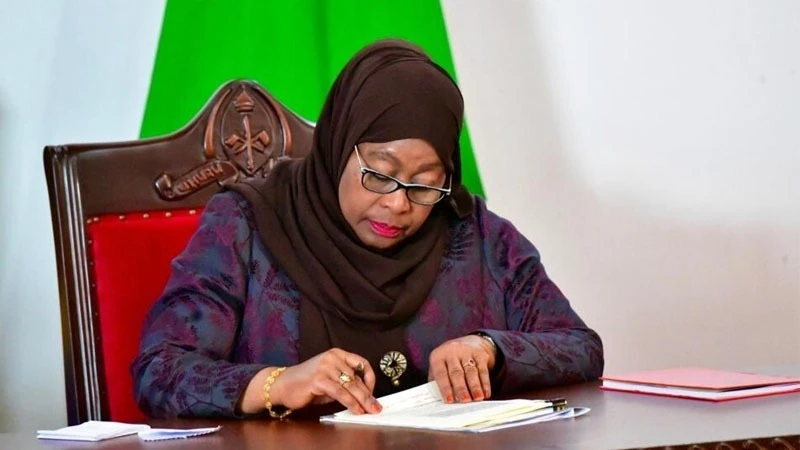Nigeria’s battered naira may get a breather on Fed’s rate cut

A likely rate cut in the United States may bring much-needed relief to one of the world’s worst performing currencies this year.
Nigeria’s naira has been under pressure, plunging by almost 100 percent since the flotation of the local unit last June, allowing the currency to be determined by market forces.
But the latest signal of a rate cut given by Jerome Powell, US Federal Reserve chief on Friday, August 23, 2024 at the Jackson Hole symposium may be the respite needed to strengthen the battered naira.
The Federal Open Market Committee (FOMC), the monetary policy-making arm of the Federal Reserve System, has held rates steady for the seventh consecutive time. But with the US inflation within the Fed’s target, lowering monetary policy rate is not unlikely in the coming months.
The 71-year-old said “time has come for policy to adjust,” adding that “the direction of travel is clear, and the timing and pace of rate cuts will depend on incoming data, the evolving outlook, and the balance of risks.”
Powell’s hints of a rate cut sent US Treasuries rallying as the dollar fell, indicating that investors were anticipating lower interest rates, which typically increase the value of bonds while decreasing the dollar’s attractiveness compared to other currencies.
The rise in euro and yen weakened the dollar index, which measures the greenback against a basket of six currencies including those two, according to Thompson Reuters data.
The index fell 0.81% from late Thursday to 100.64, having been slightly firmer before Powell’s speech.
This development could be a breather for Nigeria’s bruised naira whose depreciation due to recent economic challenges and policy shifts, has exacerbated inflationary pressures and deepened cost of living for many Nigerians.
“A weaker dollar could help ease some of the pressures on the naira,” said a Lagos-based financial expert, stressing that lower interest rates in the US make the dollar less attractive to investors, leading to a depreciation of the currency.
The Central Bank of Nigeria (CBN) has so far maintained a hawkish position in its mandate to achieve price stability. It raised the benchmark interest rate by a combined 800 basis points to 26.75 percent in less than a year.
The apex bank, in its efforts to ensure stability in the foreign exchange market, sold a record $815 million directly to businesses from manufacturers to airlines on August 6, the biggest single day intervention under new governor Olayemi Cardoso.
Despite efforts by the Abuja-based bank to shore up the local currency, the naira has barely budged, closing at 1,570.14 per dollar on Friday at the Nigerian Autonomous Foreign Exchange Market (NAFEM), according to data from the FMDQ Securities Exchange Limited.
“If the dollar weakens as a result of the Fed’s actions, the naira might experience a degree of appreciation or at least a slowdown in its depreciation,” said Ibrahim Bakare, a professor of Economics at Lagos State University, emphasizing that this could offer some relief to Nigeria’s economic crisis.
Economists polled by Reuters are however optimistic that the FOMC may lower rates by 25 – 50 basis points in their meetings in September and December.
A move in September would pivot the Fed away from a restrictive interest rate policy in place since it started hiking to fight inflation in March 2022, hoisting the fed funds target range from about zero to 5.25%-5.5%, where it has stood since July 2023.
“The signal of a rate cut, potentially in September has created a lot of optimism in the market,” said Tobi Ehinmosan, macroeconomic analyst at Lagos-based FBNQuest Capital, adding that this has sent the dollar tumbling in recent weeks.
“However, what we aren’t sure yet is the pace or speed at which the Fed will cut rates. Personally, I’d think they will cautiously lower rates to continue monitoring incoming data and price developments,” the fixed income analyst added.
Analysts have said the September lowering of benchmark interest rates by the US Federal Reserve could potentially lead to the stability of exchange rate in Nigeria.
This is as “lower US interest rates will push investors to seek higher yields in emerging markets, which could lead to increased demand for Nigerian assets and, consequently, support for the naira,” said a Lagos-based investment banker.
Ehinmosan, cited earlier, said a weakened dollar would potentially ease the demand pressure for foreign currency, as the dollar would be less attractive for investors.
“This could translate to relative stability of the Naira. However, the recent improvement in FX liquidity must still be maintained to achieve this,” he noted.
The potential rate cut is not only expected to bring a breather to the ailing naira or ensure its stability, it is equally likely to bring prices, especially imported goods down.
Nigeria is contending with a near three decade-high inflation rate at 33.40 percent in July. Even though prices dropped for the first time since late 2022, the rate is well above the CBN‘s preferred rate.
According to Samuel Sule, the chief executive officer of Renaissance Capital Africa, a US rate cut may provide “the appropriate backdrop” as the exchange rate stabilises.
Given Nigeria’s reliance on imported items, a weakened dollar could also reduce the prices of imported items, said Ehinmosan, noting that a fall in dollar may fan hope of respite to consumers.
“We all know that the exchange rate is a significant driver of Nigeria’s core inflation basket. As such, a stronger naira would have a positive pass through on Nigeria’s inflation reading,” the macroeconomic and fixed income analysts said.
Top Headlines
© 2025 IPPMEDIA.COM. ALL RIGHTS RESERVED

























